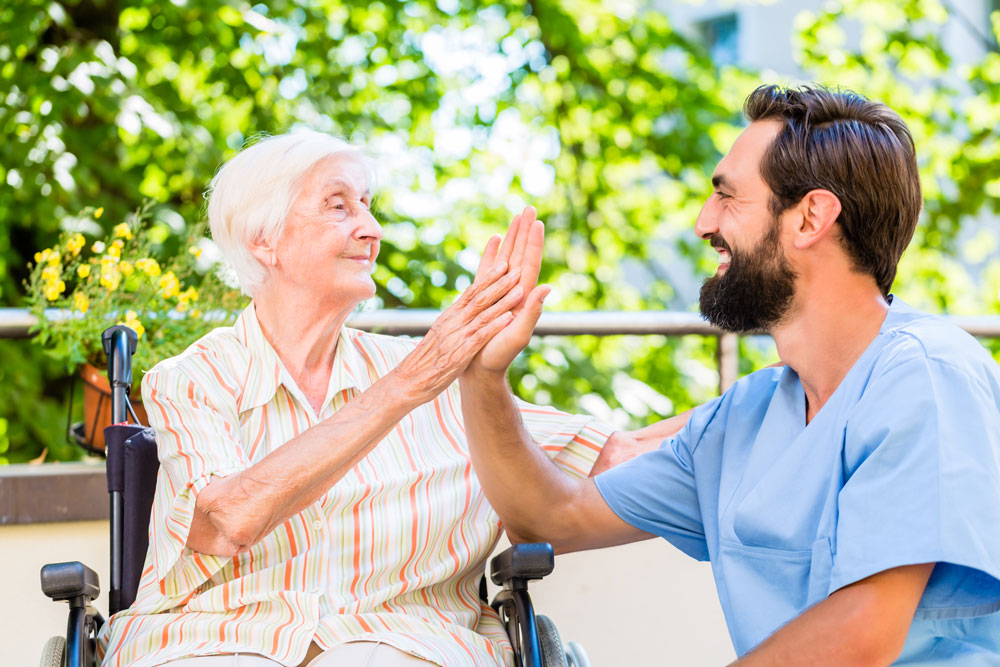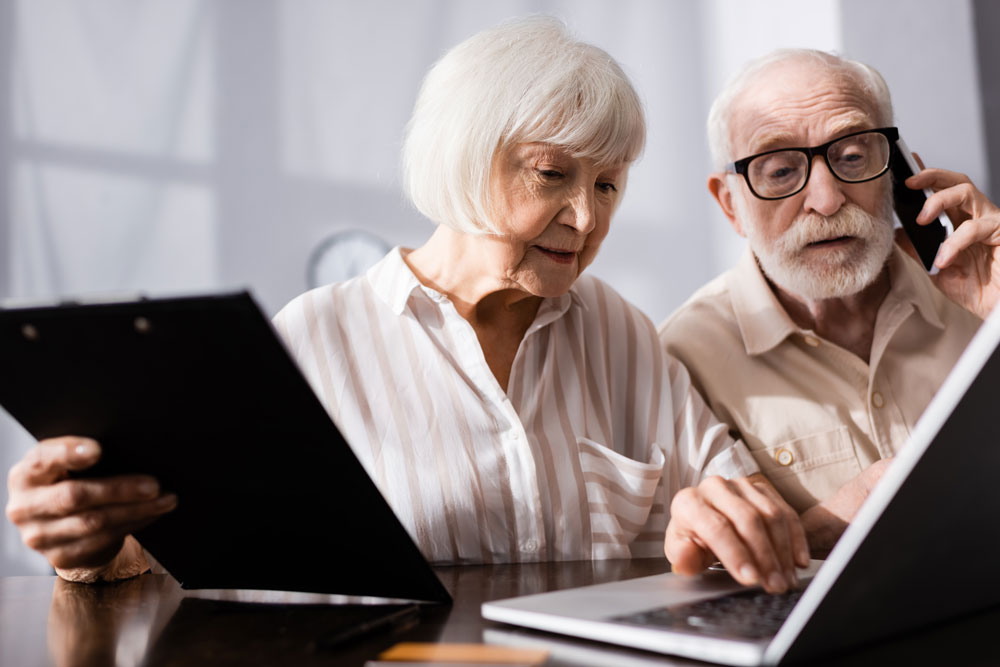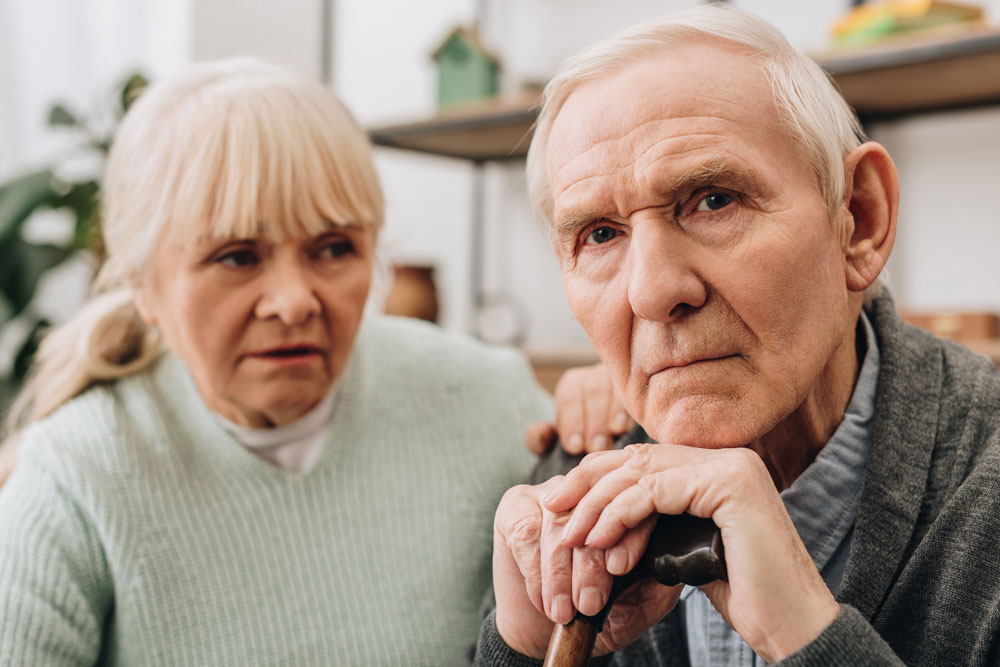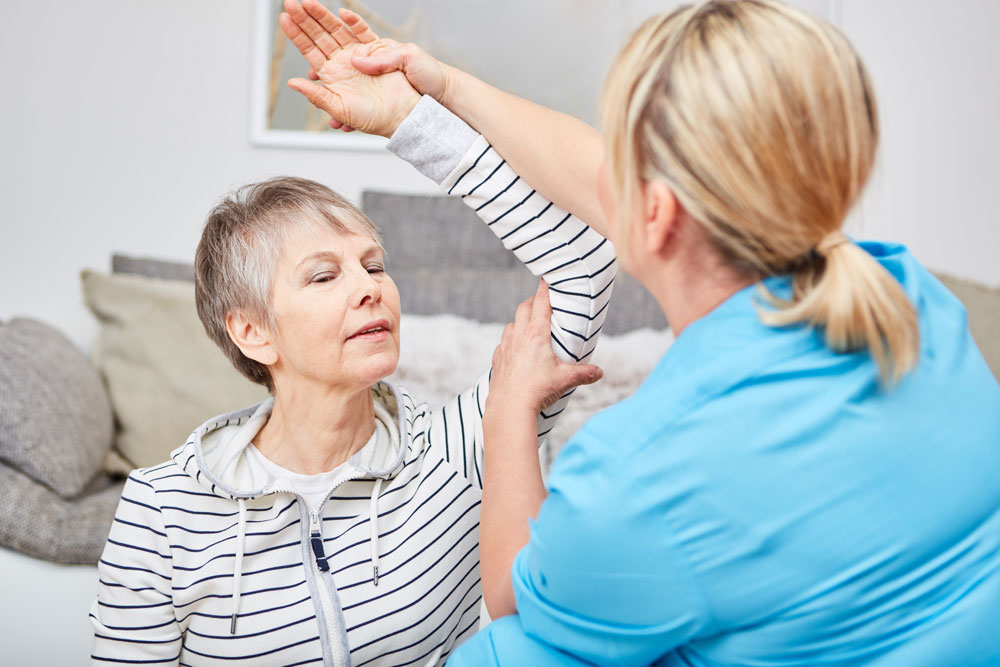To be beautiful and feel special
This digital article based on Swedish conditions is computer translated. Hopefully we can inspire people from other countries.
The skin fulfills many roles for our well-being. As we age, skin care becomes extra important. Deficiencies in skin care can lead to wounds and infections. In the worst case, deficiencies in skin care can lead to difficult-to-heal wounds and suffering for the elderly.
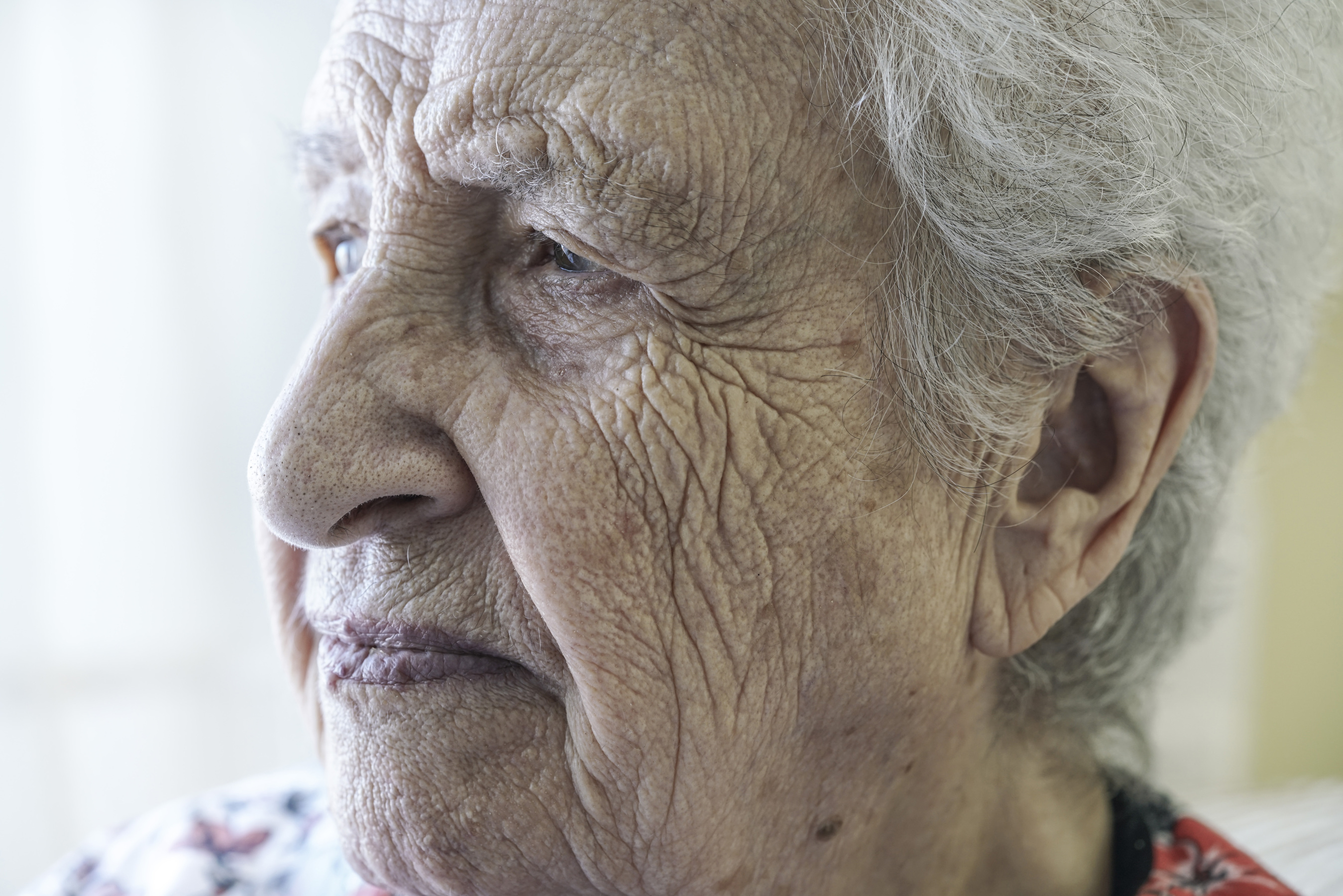 Foto: Mostphotos
Foto: MostphotosSkin care is an essential part of good elderly care
The feeling of being beautiful is essential to the well-being of many people. It is seen as important for many to have their hair styled, their lips painted, their nose hairs removed and their nails taken care of. Many nursing homes work deliberately with this. If the conditions do not exist every day, it can be an activity such as a SPA or beauty salon sometime a week. Getting dressed for a meal often evokes a positive expectation. For many, the choice of clothes is something they attach importance to and being able to look in the mirror and correct the appearance if you are not satisfied. It must be allowed to be vain and feel beautiful even if you live in a nursing home.
Touch in care
Humans have a natural need for body contact to feel good. Caring provides many opportunities for touch. Touch can be both pleasant and unpleasant, and employees must think about how it touches the residents. It is especially important in situations when they help the resident with hygiene. It is possible to ensure that the moment in the shower is pleasant and that wiping feels pleasant. Many elderly people have dry skin and therefore need to be lubricated after they have showered.
How massage is to be offered must be adapted to the resident. For many, simple hand massage can feel soothing. A hug can be valuable. There are nursing homes that offer tactile massage. It is a way of working that is deliberately used to increase the well-being of the residents with touch.
Getting your feet and hands oiled or massaged can be nice. Some crave physical touch others may find it more uncomfortable. It is important to be vigilant about the resident's experience.
Hair care
There are nursing homes that have created a SPA feeling in the communal bath. Some nursing homes regularly offer a beauty salon with a glass of wine, conversation and some quiet music.
Many elderly people need help with removing embarrassing hair growth, nose hair, ear hair and long strands that grow on the neck. Older men often get wrinkled skin and it may take some effort to remove all the beard hair.
As we age, our hair becomes noticeably thinner, changes in texture, and turns gray. Hair turning gray is the most obvious age change. The reason is that there are biological changes in the body that affect the hair follicle no longer producing the natural pigment melanin into the hair fibers. At the age of 35, the hairs start to lose their pigments and they turn grey. The hair becomes rougher and harder to manage. Over the years, the scalp becomes drier as a result of reduced production of sebum and lipids. The biggest change is that the hair becomes thinner and that we get fewer hairs. This means that the hair becomes weaker and the strands more easily damaged.
Employees can, for example, roll up their hair in connection with a shower. For many people, it is important to take care of their hair and skin, and this can affect their self-esteem. It should be stated in the implementation plan what help the resident wants with their hair and skin care. Hair care affects how worn the hair becomes. Hair dryers and straighteners, as well as the weather, make hair worn. Often a hairdresser comes regularly and offers haircuts. Those who wish to keep their previous hairdresser can go there with a transport service. It can be a good way to keep in touch with the community outside the residence.
Skin care
Elderly skin is more sensitive and more prone to various skin problems than younger age groups. Many elderly people suffer from dry skin, itching, and sometimes even skin diseases or wounds. Therefore, it is of the utmost importance to pay special attention to skin care in elderly care.
Skin care is about cleaning, moisturizing and protecting the skin. This is not only to keep the skin healthy but also to prevent damage such as pressure sores and infections. Older people who spend a lot of time in bed or in a wheelchair are particularly prone to pressure ulcers, and regular skin care can prevent these problems.
The skin is our largest organ and it is of great importance for well-being and health. Care of the skin takes place in connection with personal hygiene. Skin changes are noticed and taken care of. The resident must have skin care adapted to their needs.
Personal hygiene
Personal hygiene should provide well-being and remove dirt and other impurities. Being clean and smelling good gives you increased self-esteem. The skin's normal bacterial flora should be affected as little as possible, as it forms a defense against unwanted microorganisms.
Care must take place in close consultation with the person being cared for and according to wishes and needs. If the resident can maintain his habits, self-concept is strengthened and well-being increases. Encourage the resident to be involved and take their own initiative when it comes to personal hygiene.
As staff, you are responsible for being responsive to and, as far as possible, accommodating the resident's wishes. If the resident wishes, a close relative can provide guidance in cases where the resident cannot express his or her wishes. Document in the implementation plan. The view of the body varies, for example, between different cultures and generations, which care must take into account.
Treatment in connection with personal care
Many people feel that it is nice to be taken care of by someone else, provided that it is done in a good way. The treatment, respect and how the touch is experienced is important. Always tell us what you are doing and what you intend to do. When you work together, you must ensure that the resident is the center of the conversation. Never talk over someone's head.
Try to create a pleasant atmosphere and observe basic hygiene routines. If you are helping someone with hygiene, you must do the various steps in the correct order. There are good instructions in the Vårdhandboken about helping someone in the shower, at the sink and in bed. Skin changes are noted and reported.
As you get older, new skin cells are no longer formed as quickly and the outer layer becomes thinner. The skin's ability to retain moisture deteriorates. The production of collagen and elastin decreases. As a result, the skin becomes both looser and rougher. This means that many elderly people need to be anointed regularly. Dry and fragile skin increases the risk of pressure injuries and other wounds.
Inspect, report and document skin changes that may be signs of skin damage or drug side effects. Observe the resident's general condition and activity capacity. The residents must have clean hands, cut short and clean nails to prevent injuries and the spread of infection.
Feet and nails
The business must have good routines so that everyone gets their feet cared for regularly. The Vårdhandboken provides good support for working with foot care. Older people often get more calluses and harder-to-maintain nails. Good routines for foot care reduce the risk of self-cracks and wounds. All residents are given regular foot care. The feet are washed with soap and water and carefully dried between the toes.
Nails should be cut straight and not too short. Calluses on the feet are carefully filed away with a sandpaper file. Oil your feet and change your socks often. Good shoes are an essential part of foot health. Nail fungus and calluses are treated. Toenails sometimes become hard and hard to cut. It can be good to have a podiatrist attached to the residence who comes regularly so that everyone receives expert help at regular intervals in addition to everyday care.
Preventive foot care for residents with diabetes reduces the risk of difficult-to-heal wounds and amputation. The feet should be assessed annually by a nurse in terms of vibration sense, sensation and circulation. Those who belong to the risk group must be offered medical foot care.
Reflection - skin care
Care staff:
• What do you do to make the elderly participate in choosing clothes, hair care, etc.?
• Are there wishes and needs relating to help with personal hygiene documented in the implementation plan?
• Does reporting back to the nurse work when someone has dry skin or skin damage?
• Do you take good care of the residents' feet?
Manager, nurse, occupational therapist and physiotherapist:
• Do the care staff have good conditions to meet the wishes of the residents regarding personal care?
• Do routines regarding feedback on dry skin or skin damage work?
• Do you follow up on how the work to help with personal hygiene is carried out?
• Do all residents get their feet well taken care of?
Resident and next of kin:
• Do your relatives usually dress neatly?
• Does hygiene and hair care work?
• Are the feet and nails well groomed?
Erland Olsson
Head nurse
Sofrosyne
Better care - every day

Aktuellt i media
- 2024-04-25 04:00 04 Bemötande
- 2024-04-22 04:00 01 Kvalitet
- 2024-04-18 04:00 10 Aktivitet o funktionsbevarande arbetssätt
-
2024-04-15 04:00
09 Mat och måltid
Food and fall prevention. How the nursing home ensures a safe and nutritious food handling.
info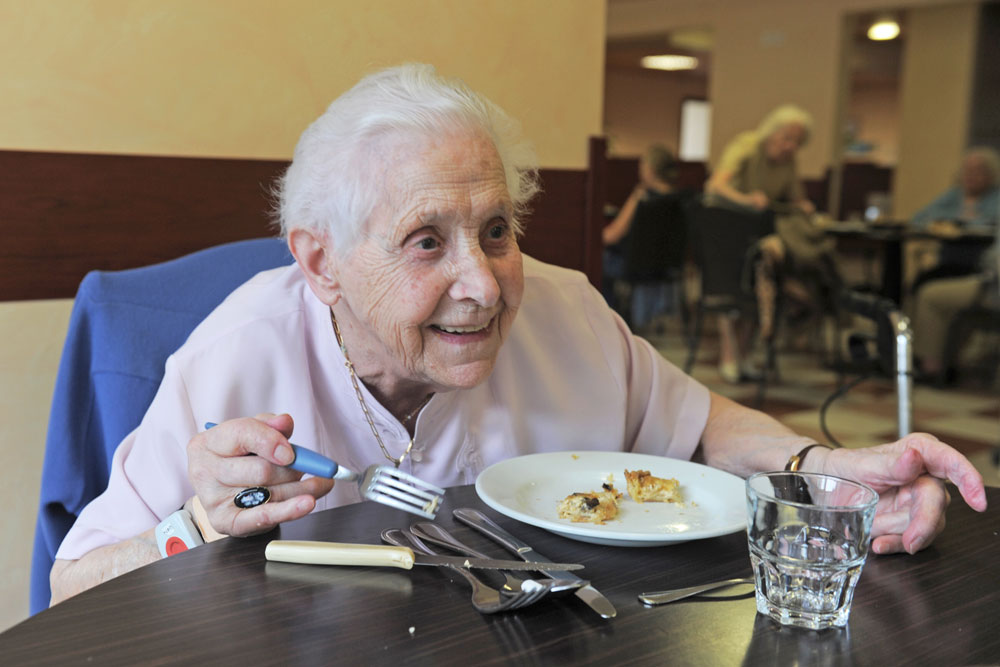 Foto: Mostphotos
Foto: Mostphotos - 2024-04-11 04:00 05 Planering
- 2024-04-08 04:00 10 Aktivitet o funktionsbevarande arbetssätt

